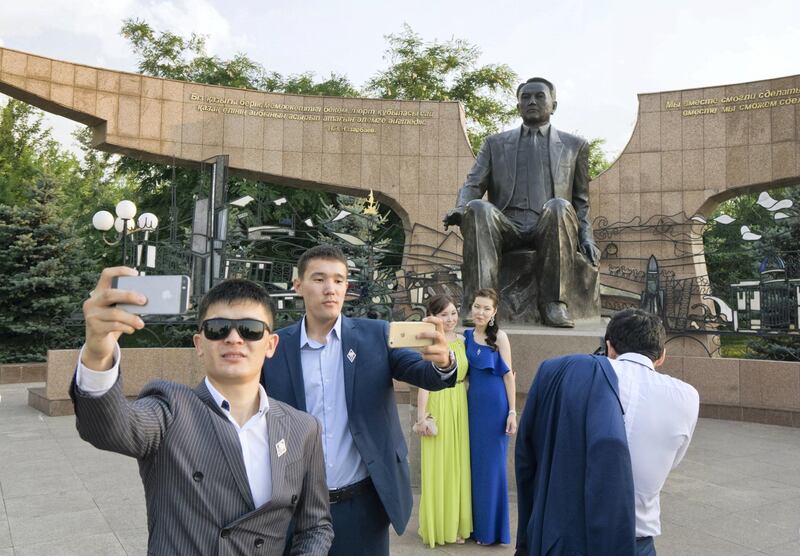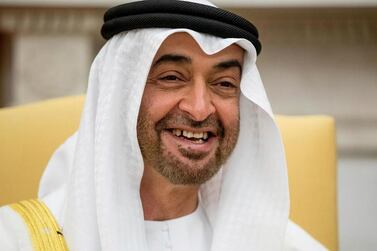One of the world’s longest-ruling leaders dropped a political bombshell on his country this week, announcing his retirement after three decades in power.
Nursultan Nazarbayev, the septuagenarian strongman president of the oil-rich Central Asian state of Kazakhstan, said on March 19 that he was bowing out to make way for a new generation of leaders, in a bold move that took many by surprise in the country he had led since before it became independent when the Moscow-ruled Soviet Union collapsed in 1991.
His departure as president of the world’s ninth-largest state, a land of mountains and deserts which sprawls across Eurasia between Russia and China, marked the end of an era for the wider region, too: he was the last post-Soviet leader still in power who had steered his country out of the communist USSR and into independence nearly 30 years ago.
Power behind the throne
Choosing retirement at the age of 78 was, he said, “not a simple decision for me”, but “as the founder of the independent state of Kazakhstan I see my future priority as assuring that a new generation of leaders comes to power who will continue the transformations that have taken place in the country”.
Mr Nazarbayev was immediately succeeded by Kasym-Zhomart Tokayev, a faithful lieutenant who, as speaker of the Senate, was constitutionally required to assume power in the event of the president stepping down and was sworn in on March 20.
That move was in itself a novelty for Central Asia, whose autocratic leaders have more usually been chased from office through uprisings (twice in neighbouring Kyrgyzstan, in 2005 and 2010) or dropped dead in office (in Uzbekistan in 2016 and Turkmenistan in 2006).
Yet there is a twist to this transition: Mr Nazarbayev, who appears sprightly despite his age, is not bowing out of politics altogether: in fact, he will be the power behind the throne as Kazakhstan enters a new political age.
Change or status quo?
A wily politician, Mr Nazarbayev has been quietly laying the ground for his retirement for years, with legal mechanisms established for him personally – under his special constitutional status as Kazakhstan’s “first president” – to ensure that he still wields real power when a successor takes his place.
Mr Nazarbayev will chair the powerful Security Council and sit in the Senate for life, and participate in making domestic and foreign policy as he seeks to keep Kazakhstan on the course he has set.
“The status quo will be preserved under the living ex-president, and naturally there will be no revolutionary changes,” political analyst Dosym Satpayev said in remarks quoted by Kazakh news site Vlast. “Under the living ex-president, domestic and foreign policy will be pursued more or less as they have been.”
On the foreign policy front, two of the world’s most powerful geopolitical players – Russia and China – are closely eyeing the political transition playing out on their borders.
Mr Nazarbayev has allied Kazakhstan closely to both, and they wish to ensure their political and economic interests are not threatened as the Central Asian state moves forward.
Mr Tokayev is a career diplomat who has served as Kazakhstan’s foreign minister, so he is likely to prove as adept at juggling competing geopolitical interests as Mr Nazarbayev was. It will help that he speaks fluent Mandarin and Russian, as well as Kazakh and English.
Russia’s president, Vladimir Putin, is wary of political change on his borders – but that is unlikely from Kazakhstan’s new president, who has long served Mr Nazarbayev’s autocratic regime.
China is eager to safeguard its economic interests in the country, where it controls energy assets and is investing in infrastructure projects for its Belt and Road project.
Mr Tokayev will also be looking to maintain relationships with the Arab world, including the UAE, which has major construction and business investments in Kazakhstan.
Preserved for posterity
As for people at home in Kazakhstan, they were left reeling by Mr Nazarbayev’s shock announcement – especially young people who have never lived under another leader, which is half the population.
“I don’t know another president, and I don’t want to either,” said Adilbek, a civil servant in the financial capital of Almaty, who declined to give his surname. He was born in 1989 – the year Mr Nazarbayev became leader of Soviet Kazakhstan, and for him the outgoing president is all but synonymous with the country itself.
Mr Nazarbayev will certainly be a hard act to follow, but as he leaves office after three decades at the helm, Kazakhstan is already recording his legacy for posterity.
One of Mr Tokayev’s first acts as president was to rename the capital city that Mr Nazarbayev ordered built on the frozen northern steppes of Kazakhstan after independence: the city of Astana, which simply means "capital", has become “Nursultan”.
Joanna Lillis is the author of Dark Shadows: Inside The Secret World of Kazakhstan






